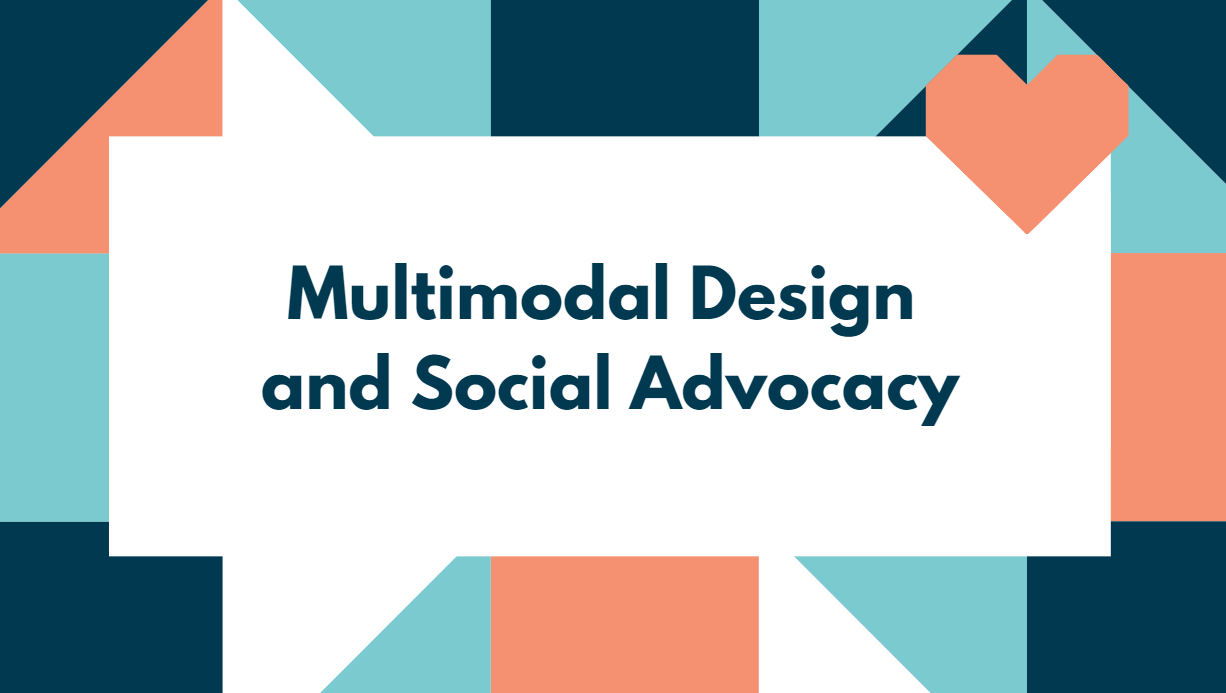Editors: Jialei Jiang and Jason Tham
Introduction
The recent return to virtue ethics and social equity in the interconnected fields of digital rhetoric, multimodal composition, and technical communication prompts researchers and practitioners to rethink multimodal design beyond the cultivation of technical skills. Instead, last year has seen a surge of scholarly interest in exploring and strengthening the nexus between design practices and ethical commitments. In Rhetoric, Technology, and the Virtues, Jared S. Colton and Steve Holmes (2018) expand our understanding of ethics and ethical dispositions in digital media as situated in specific social interactions and as shaped by particular rhetorical purposes. Similar engagements with digital and multimodal design have appeared in Godwin Y. Agboka and Natalia Matveeva’s (2018) edited collection Citizenship and Advocacy in Technical Communication. Multiple chapters in this collection draw our attention to the exigency in sustaining multimodal advocacy both inside and outside of the classroom.
Echoing the call for furthering social justice approaches by these scholars, we envision design to be a critical practice that holds considerable potential for fueling social action and effecting social change. In an earlier DRC webtext on “Multimodal Design and Social Advocacy,” for instance, we have coined the term “design advocacy,” or social justice initiatives actualized through design, to chart future directions for design as a site of critical inquiry. We have also connected “design advocacy” with our various intellectual pursuits and pedagogical practices, such as encouraging students to design multimodal campaigns in response to social problems (Jialei), challenging students to advocate for marginalized social groups through design (Jason), and proposing responsible design solutions for working with vulnerable social groups (Katie).
In this Blog Carnival, we hope to spark an interdisciplinary conversation surrounding the key role of multimodal design in fostering social advocacy within and across the fields of digital rhetoric, multimodal composition, and technical communication. We understand design as a capacious term applicable to the design of multimodal composition projects, course syllabi and assignments, website interfaces, user experience tools, DIY makerspaces, industrial products, and software applications, among other forms of design practices. Through the process, we encourage Blog Carnival participants to address one or more of the following questions or to explore other relevant questions.
Questions
- How might we further re-define or re-contextualize the rhetoric of design to include considerations of ethics, advocacy, and marginalization towards issues of social, material, and technological equity?
- How does design advocacy allow us to reframe and rethink the relevant theories and practices within the individual disciplines of digital rhetoric, multimodal composition, and technical communication?
- In what ways can we sustain design advocacy across the borders and boundaries of these fields of study? How will design advocacy disrupt disciplinary boundaries and/or carve out new spaces of inquiry?
- How have you integrated design advocacy in your classroom? How do your multimodal teaching practices and assignments inform the design of more effective pedagogical approaches?
- What challenges or difficulties may distract us from leveraging the full potential of multimodal design in fostering social advocacy? What are ways to address and overcome these challenges?
If you’re interested in contributing to this Blog Carnival, please submit your name, email, and short (about 100 words) proposal to this Google Form. We will be reviewing and accepting proposals in early March, so please send your descriptions as soon as possible, but no later than March 8th. Full blog posts will be due by April 5th. When completed, the blog post should be about 750-1000 words, but we do have some flexibility as we’re on a digital platform. We encourage posts in a variety of forms and any medium appropriate for featuring digitally on the DRC, such as text, audio, and visual or other multimedia.
Blog Carnival Timeline
- 100-word proposals due – March 8th
- Acceptance notices – March 15th
- Blog entries due – April 5th
- Final publication – April 12th

